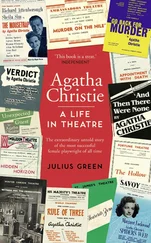Alice Green - Town Life in the Fifteenth Century, Volume 2
Здесь есть возможность читать онлайн «Alice Green - Town Life in the Fifteenth Century, Volume 2» — ознакомительный отрывок электронной книги совершенно бесплатно, а после прочтения отрывка купить полную версию. В некоторых случаях можно слушать аудио, скачать через торрент в формате fb2 и присутствует краткое содержание. Жанр: literature_19, foreign_antique, foreign_prose, Историческая проза, на английском языке. Описание произведения, (предисловие) а так же отзывы посетителей доступны на портале библиотеки ЛибКат.
- Название:Town Life in the Fifteenth Century, Volume 2
- Автор:
- Жанр:
- Год:неизвестен
- ISBN:нет данных
- Рейтинг книги:5 / 5. Голосов: 1
-
Избранное:Добавить в избранное
- Отзывы:
-
Ваша оценка:
- 100
- 1
- 2
- 3
- 4
- 5
Town Life in the Fifteenth Century, Volume 2: краткое содержание, описание и аннотация
Предлагаем к чтению аннотацию, описание, краткое содержание или предисловие (зависит от того, что написал сам автор книги «Town Life in the Fifteenth Century, Volume 2»). Если вы не нашли необходимую информацию о книге — напишите в комментариях, мы постараемся отыскать её.
Town Life in the Fifteenth Century, Volume 2 — читать онлайн ознакомительный отрывок
Ниже представлен текст книги, разбитый по страницам. Система сохранения места последней прочитанной страницы, позволяет с удобством читать онлайн бесплатно книгу «Town Life in the Fifteenth Century, Volume 2», без необходимости каждый раз заново искать на чём Вы остановились. Поставьте закладку, и сможете в любой момент перейти на страницу, на которой закончили чтение.
Интервал:
Закладка:
217
In Norwich in spite of the statutes of 1436 and 1503 (15 Henry VI. cap. 6; 19 Henry VII. cap. 7) the crafts persisted in making rules by which apprentices were compelled to pay 20 s. or 30 s. for entry into the common hall (compare the composition of 1415 in the Norwich documents) – a fine which meant that the craftsmen were practically denied the freedom of the city, and therefore the position of master, and were thus forced to swell the body of journeymen. An Act passed in 1531 ordered that no apprentice should pay more than 2 s. 6 d. for entry into the common hall; or 3 s. 4 d. at the end of the term for the freedom of the company; but the companies evaded this law by asking only the statute sum for the freedom of the company, but making the candidates swear they would not trade without license, for which they had to pay at the company’s pleasure. This was again forbidden by Henry in 1537 (Blomefield, iii. 181-2). Among the weavers of Newcastle in 1527 all who had finished their apprenticeship were admitted to membership on payment of 13 s. 4 d. , but any man of the craft desirous to be of the fellowship a brother thereof, with power to set up shop, had to pay £20 (Newcastle Guilds). The London grocers in 1345 paid 20 s. for each apprentice; the apprentice who wished to belong to the fraternity paid 40 s. on leaving his master (Kingdon’s Grocers’ Company, i. 11, 12).
218
Compare Riley’s Mem. Lond. 244, 181, 278, 354. Black’s Leathersellers, 39.
219
In London no apprentice after his term was to use his trade till he had been sworn to the franchise. (Liber Albus, 272.)
220
Journeymen among the cutlers and founders who had not served their time as apprentices could only get such wages as the overseers of the trade allowed to them after examination. (Riley’s Mem. Lond. 439, 514.) The system was probably widespread to judge from the many ordinances concerning wages. Unskilled journeymen must be spoken of in the ordinances of the bladesmiths. (Riley’s Mem. 570.) For serving-men who worked by the day for the glovers see ibid. 246. In 1449 at Coventry a reasonable wage seems to have been 4 d. a day; but a capper’s journeyman in 1496 got 12 d. a week working twelve hours a day (reference to Coventry records given me by Miss Dormer Harris).
221
7 Henry IV. cap. 17.
222
The law was done away with when it turned to the hurt of the employers. In a later state of the cloth industry some of the old centres of industry such as London and Norwich and Bristol found their wealth decayed; and decided that their trade was starved for want of workmen while the young people were growing up to idleness and vice. Then the masters, actually threatened with the loss of their manufacturing industries, insisted on new laws allowing them to take apprentices without regard to the Act of Henry the Fourth (11 Henry VII. cap. 11; 12 Henry VII. cap. 1).
223
Hudson’s Notes about Norwich; in Norfolk and Norwich Arch. Soc. vol. xii.
224
English Guilds, 284-6, 337, 350. See in Exeter the relations of the Tailors’ Guild to the suburbs. (Ibid. 310.) Possibly the system may even then have been like the ordinary system which generally prevailed till the end of the last century. In Dereham in Norfolk the site of a line of hovels is still marked in which a group of shoemakers lived and worked for the Norwich masters, whose collector came round every week to collect the finished work. A rich farmer seems to have served as a sort of contractor in the tailoring trade; the upper floor of his house immediately below the roof formed a long room without any partitions in which ten or twelve tailors worked by day and slept by night, and the contractor dispatched their work to the Norwich dealer.
225
Chap. XII. p. 385. See also the monopoly of the York weavers in the twelfth century, with the control of trade in the whole county which it must have implied. (Gross, i. 108, note.)
226
English Guilds, 383.
227
Von Ochenkowski (Wirthschaftliche Entwickelung, 128-133) scarcely seems to distinguish sufficiently between the objections to the competition of the dealers or masters from the suburbs, and to the employment by town manufacturers of labour outside the town. The resistance would necessarily have come from different quarters and for different reasons.
228
Cf. The Common Weal (ed. E. Lamond), 49.
229
The well-known rioter is described by Skelton. Poems (ed. Dyce), ii. 43-4.
230
This was sometimes done by royal charter. (Hibbert’s Influence of Eng. Guilds, 96.) All the facts are against the theory of Marx that the merchant was by some hostile force prevented from buying labour, though allowed to buy other commodities. The limitations were of the merchants’ and dealers’ own making for their own purposes. It is equally improbable that the guild organization excluded division of labour in the workshop. (Marx, Capital, &c. i. 352.)
231
This uniformity is well illustrated in the later ordinances of the Hull Guilds. (Lambert, Two Thousand Years of Guild Life; Gross, ii. 272.)
232
Clode, Merchant Tailors, p. 2.
233
In 1311 the “hatters” and the “dealers who bought and sold hats” in London were two quite distinct callings. (Riley’s Mem. 90.) The distinction was well known in 1327 between the saddlers and the various orders of workmen employed in manufacturing for them. (Ibid. 157-8.)
234
A separation of the guilds into these groups is sufficient of itself to shew of how little value the generalizations of Marx are as to the relations of the crafts to capital; and how misleading it is to represent the guilds as providing the main opposition to merchants or capitalists, especially in the matter of refusing the supply of labour. (See Marx i. 352.)
235
Seligman (Two Chapters on Mediæval Guilds, 69) states that the crafts were not charitable associations giving relief to poor members till the fifteenth century. Out of twelve crafts mentioned in English Guilds, nine gave relief to poor, and three do not mention it. For the Braelers in London, 1355, see Riley’s Mem. 277; the White tawyers, 1346, ibid. 232; the Lorimers, 1261, Liber Cust. 78-80. Most of the ordinances in Riley’s Mem. make no mention of relief, but the ordinances are so manifestly incomplete – merely additions or alterations made for some special purpose – that no argument can be drawn from them. The vast majority of religious or social guilds had some charitable provisions, and in many cases these were certainly trade guilds. The probability seems to lie on the side of help given to poor members from the first.
236
The way in which the guilds fought in defence of their voluntary courts of arbitration, and the objection of the towns to these, is in itself proof enough of the importance to their members of a tribunal, however voluntary and arbitrary, which might relieve them from the interference on every occasion of the local magistrates, and the party politics of the town. The advantages of association in case of being called before the greater courts is evident from the account of mediæval procedure given in Sir J. Stephen’s History of the Criminal Law. The illustrations afforded by the Paston Letters are without number. See Manorial Pleas (Selden Soc.), 136. For the heavy cost involved by the corrupt practices of lawyers, judges, pleaders, and attorneys, see the action brought in 1275 by an advocate against an employer who had withdrawn from the case; the advocate sues for his fees and also for having been prevented by the stopping of the case from getting a very large sum of money out of the other side. (Ibid. 155-6.)
Читать дальшеИнтервал:
Закладка:
Похожие книги на «Town Life in the Fifteenth Century, Volume 2»
Представляем Вашему вниманию похожие книги на «Town Life in the Fifteenth Century, Volume 2» списком для выбора. Мы отобрали схожую по названию и смыслу литературу в надежде предоставить читателям больше вариантов отыскать новые, интересные, ещё непрочитанные произведения.
Обсуждение, отзывы о книге «Town Life in the Fifteenth Century, Volume 2» и просто собственные мнения читателей. Оставьте ваши комментарии, напишите, что Вы думаете о произведении, его смысле или главных героях. Укажите что конкретно понравилось, а что нет, и почему Вы так считаете.












